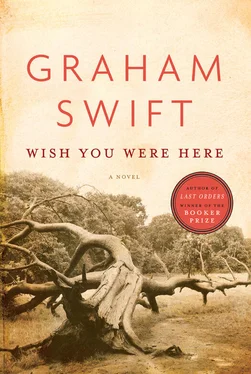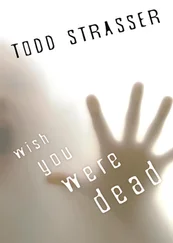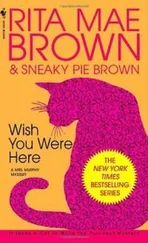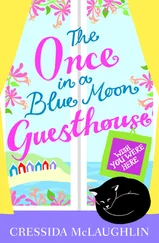Was she packing her bags?
It seemed to him that there was now a difference, a gap, between Ellie and him as plain as that strip of choppy sea he’d crossed this morning. For her, Tom’s death meant quite simply that Tom was gone now for good and was never coming back. He could see that this was a perfectly sound position. But for him it meant just as simply — though it was a position much harder to argue for — that Tom had come back. He understood it truly now. He’d come back as surely as if that letter announcing his death had really been Tom himself knocking on the door. Can I come in? It was as if Tom, whom he’d lived without for thirteen years, could no longer, now he was dead, be lived without. He’d been trying to drive away from this nonsensical, pursuing fact, and yet it was true.
There was even a simple test. He asked himself a question that, lurking inside him though it may have been, he hadn’t dared confront till now. Perhaps it had only become a question since he’d made his bolt for it, after the ceremony, back there. Who would he rather have right now — right now between junctions 17 and 18—in that empty seat beside him? Ellie? Tom?
It wasn’t an easy question or even a fair one. For a moment he failed to answer it. But then, for a clear second or two, and by way of an answer, Tom was there. He had a corporal, in battle gear, sitting beside him while he drove, under a brightening sky, down the M4. This was the first time this had happened on his journey, and it wouldn’t be the last. Jack wasn’t frightened or even surprised. He was even relieved. He didn’t need now to worry about the hearse, about outstripping it, because Tom was with him anyway.
It’s because he’s really come back, he thought. It’s because I touched the coffin and held it. Like a kind of contamination, but a good one.
Then he thought: Am I going mad?
Last night (was it only last night and not last week?), when Jack had asked Ellie one last time — he wasn’t going to insist or demand — if she’d come with him, she’d shaken her head and taken a deep, exasperated breath, as if she might have been going to say, ‘It’s him or me, Jack.’ He was sure she was going to say it, that was the look in her eyes, but she hadn’t said it.
And he should never have said that thing, at the start, about St Lucia. Then Ellie would be with him now. He’d seen the same look come into her eyes then — as if, strangely, now Tom was dead, she could no longer rely on his absence. And hadn’t he just proved her right? The simple word was ghost.
‘So what are you going to do, Jacko? Mope around here all winter?’
The word was ‘mourn’, he’d thought. Mourn, not mope. But he couldn’t say it—‘Mourn, not mope, Ellie.’ The word had stuck in his throat. Like St Lucia hadn’t.
And if Ellie were with him now, sitting right beside him, would that mean Tom wouldn’t be, couldn’t be? That there couldn’t be any ghosts? Now all the other ghosts, it suddenly seemed to him, were waiting for him too — sensing his approach, beyond the end of this blue, snaking motorway. Including Jimmy Merrick, with an extra, needly twinkle in his eye. ‘What — no Ellie with you, boy?’
Was he going mad?
Bristol, like some phantom presence — a thickening of traffic and junctions — passed somewhere on his left. He filtered off the M4 onto the M5, confused by the lanes. Bristol, Avonmouth, Portishead. The sea could not be far away. A different sea from the one he’d seen and crossed this morning. The Bristol Channel. The map of England wheeled in his head. Portsmouth, Southampton, Bristol. He was on an island. And he was in Somerset now, a sign told him. The West Country. Clevedon, Weston-super-Mare. He’d never been to Weston-super-Mare, but the name smacked of caravans.
Beyond Taunton — most of his motorway driving was behind him now — he pulled into a service station, needing to piss and eat. It was more that he was empty than hungry. He needed to fill himself as he might have needed to fill the car. He needed to drain himself, though he felt already drained. In the Gents he could have sworn that, again, for just a moment, he’d seen Tom, three urinals along. Desert camouflage, slung rifle. Had he simply imagined it this time?
He walked back out towards the cafeteria, past a row of busy, brightly coloured miniature cars on stands, each occupied by an eager child who could only just have been released from a real car. He was still feeling, himself, though he was on his feet, the sway and thrum of being on the road. The cafeteria was a near-replica of the one he’d sat in, near Newbury, this morning, but now he wondered how many of those around him — or how many of those who would pass through here today — would have some link, no matter how remote (a cousin, a brother-in-law) with someone in Iraq. There ought to be a badge, perhaps, a means of recognition. No there shouldn’t. If there was a war on terror, that would be a stupid idea. Could bombs go off in motorway service stations?
That place in Oxfordshire, he thought, had been like a great big bloody service station — for the services.
It was not quite three o’clock, but the day was waning. The light outside seemed fragile and taut, already preparing to depart. He’d made good time and there was now no particular need to rush, but he had an odd fear of having to drive in the dark. Though he wasn’t afraid of seeing Tom again. It had happened twice now, so the possibility was strong. He was no longer afraid of the hearse — which, even while he sat here, might whizz sneakily past. Perhaps, in some quite feasible and arguable way, Tom was no longer in the hearse. He stared at the empty chair beside him, which stayed empty.
It was clearly something Tom had control over, not him.
He pushed aside his plate, got up and walked back to where he’d parked. It was distinctly cold now. The sky was virtually clear and the edges of things had sharpened. His thin shadow, like a pointer on a dial, went before him across the car park. He still wore the black tie, not even loosened. His suit, which he’d have to wear tomorrow, would now be hopelessly creased. He laid the jacket again on the back seat. The medal went back into his shirt pocket.
Only a few minutes and a few miles further on, he crossed into Devon. ‘Welcome to Devon.’ Did he feel he’d come home? Did he feel he’d crossed a special line? Within half an hour, on the outskirts of Exeter, he turned off the end of the motorway onto the westbound A30. The possibility had certainly occurred to him of exiting at an earlier point and taking a route along slower country roads that would eventually have led him into landscapes that he knew. But he instinctively wanted to stave off till tomorrow — and even then, perhaps, to keep it as brief as possible — encountering any views that were familiar. This wasn’t memory lane. The dual carriageway of the A30, as well as being fast, had the numbing virtue of being like any busy trunk road anywhere.
But even as he sped along it, he began to see, on his right, a certain kind of bulging hill, a certain kind of hunched, bunched geography that he intimately recognised, and ploughed and scooped out of it, here and there, were areas of bare earth with a familiar ruddy hue. In the late-afternoon light it even seemed to glow. These sights brought an unexpected tightness to his throat. ‘Earth with dried blood in it,’ Michael Luxton had once moodily said.
The sky was darkening, with a reddish tinge to match the scours among the hills. He switched on his side lights. On the left, Dartmoor loomed. Its distant, cloud-hung outline had once been the regular sight at Jebb. So, he couldn’t deny it, he was back now. On the other hand, he had never been to Dartmoor, and he was about as close to it now as he’d ever been. Though it had been constantly there once, on the horizon, it might as well have been the Isle of Wight. And he’d understood that it was a tourist place, where holidaymakers went in the summer. Also a place, he’d understood, where there were signs saying, ‘Army: Keep Out’.
Читать дальше








![Питер Джеймс - Wish You Were Dead [story]](/books/430350/piter-dzhejms-wish-you-were-dead-story-thumb.webp)



